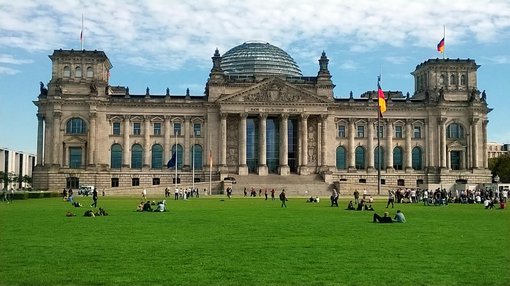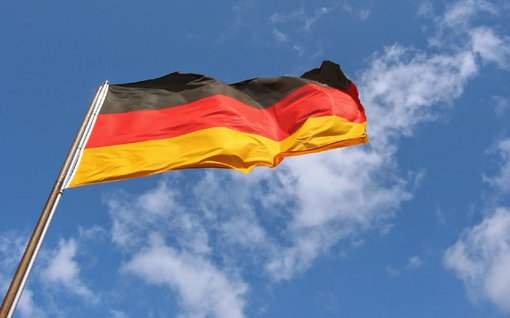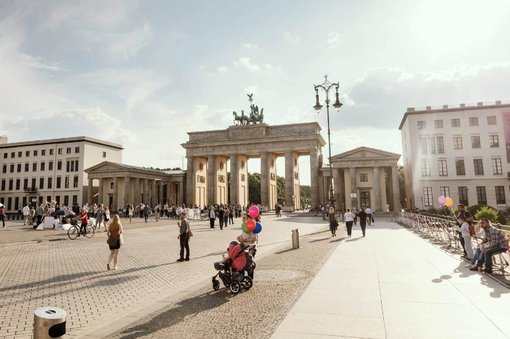German Greetings: From 'Hello' and 'Good Day' to 'What’s Up?'

As the most common mother tongue in the European Union, German is spoken in Germany, Austria, and Switzerland. Even though more than 50% of Germans speak English, learning a few German greetings will be more than helpful. Especially if you are planning to join the hundreds of thousands international students in Germany. But, these greetings are for anyone, regardless of their reason for visiting Germany!
The process of learning German also involves discovering how to use words and phrases in their cultural contexts. You might find yourself confused about whether a specific greeting is appropriate for a particular situation when learning German. Some greetings are formal, and others are informal.
Here are a few German greetings you should know:
| Greeting | Translation | Note* |
|---|---|---|
| Hallo | Hello | Simple way to say “Hello”. |
| Guten Tag | Good day | Can be used during noon. |
| Was ist los? | What's up? | With this one you need to pay attention to the tone. |
| Alles Klar | All good? | Another way to say “what’s up”. |
| Moin | Morning | Simple way to say Hello. |
| Wie geht es dir?/Wie geht es ihnen? | How are you? |
Use Wie geht es dir? when addressing someone young or someone you know well. Use Wie geht es ihnen? when addressing strangers, people in authority positions, or older people. |
| Na? | Hey | Casual greeting. |
| Tag | Day | Casual greeting. |
| Sehr erfreut! | Nice to meet you. | Used when meeting someone for the first time. |
| Grüß Gott | God bless you | Another way of saying hello. |
| Lange nicht gesehen | Long time no see | Used as a greeting. |
| Auf Wiedersehen | Goodbye | Formal way of saying goodbye. |
| Bis später | See you later | Informal expression. |
| Schönen Tag! | Have a good day. | Formal way of saying have a good day. |
| Tschüss! | Bye | Informal expression. |
Hallo
Hallo is the easiest and most direct way to say "hello" in German. It is short and common across all German-speaking countries. In addition, it is friendly and can be used in formal or informal situations.
Guten Tag
Guten Tag is the way to go if you want to say 'Hello' or ‘Good day’ in German to someone you respect or a stranger. The phrase Guten Tag can also mean 'good afternoon', but it is actually used all day.
Germans can also use some other greetings depending on the time of day:
- Guten Morgen. Which means ‘Good Morning’ and can be used before midday.
- Guten Tag. Which means ‘Good Afternoon’ and can be used from noon until dusk (6 pm).
- Guten Abend. Which means ‘Good Evening’ and can be used from dusk to bedtime.
Germany is known for its efficiency, so greetings are often shortened to one word. Here are some examples:
- Morgen!
- Tag!
- Abend!
Was ist los?
Was ist los is the same as saying "What's up?" or "What's happening?", very similar to the other German greeting "Alles Klar?". If someone asks you “Was ist los?” you should pay attention to their tone of voice. While in the context of greetings, it may mean "what's up?" or "what's going on?" it also may mean "what's wrong?" or "what's the matter?”.
Alles Klar
When you live or travel in Germany, you'll hear people saying “Alles Klar” all the time. It means “Everything is clear”. Greeting someone with "Alles klar" is similar to greeting someone with "What's up" in English. The best way to answer 'Alles klar' is with a simple ‘ja,’ which means "yes," or simply "Ja, alles klar, danke.", which means "Yes, everything is fine".
Moin!
On the other end of the German map, Moin is commonly used in northern Germany, mainly around Hamburg. You may hear people double it up: moin moin. Although the origins of moin are tied to Morgen (Morning), it can be used for greeting people throughout the day.
Wie geht es dir? / Wie geht es ihnen?
Wie geht es dir means “How are you?”. When addressing a young person or someone you know well, use dir. Use Ihnen for strangers, especially older people and people in authority positions.
Many English-speaking countries use the greeting "How are you?" to greet everyone, including store clerks and waitresses. However, this is not as common in Germany, so it's best to use it with people you know.
Na?
The German greeting Na? is a popular one in the north. Still, people from Southern Germany, Austria, and Switzerland often struggle with it. It's translated to “Hey”, “How are you?”, and “Fine, thanks.” all rolled into one. You can say Na? or be more inquisitive and ask “Na, wie gehts?” Which means “Hey, how are you?”. It’s also paired with other words, for example, Na gut (Very well) and Na klar (Of course).
Tag
Tag means "day", but it can be used as a casual greeting instead of Guten Tag. There’s also Tagchen, if you’d like to sound more friendly. Tagchen translates to “little day”.
Sehr erfreut!
Sehr erfreut means “Nice to meet you” or “Delighted!”, and is used when meeting someone for the first time.
Grüß Gott
Grüß Gott is a shortened form of the phrase grüß dich Gott which means “The greeting of God to you.” Grüß Gott translates to "may God bless you." For Southern Germans and Austrians, it means nothing more than “Hello.”
Lange nicht gesehen
This greeting is often used when seeing a familiar, friendly face after some time apart, which translates to "Long time no see" in English.
Auf Wiedersehen
Auf Wiedersehen means "Goodbye" and is a formal greeting. One would probably not use it between close friends or family members.
Bis später
Bis später is an informal expression that means "I'll see you later." It is usually used when seeing someone or a group of people again on the same day.
Schönen Tag!
Schönen Tag is a formal way of saying goodbye to acquaintances and people you don't know well, such as waiters, taxi drivers, or store employees. It is typical to reply with Danke, du auch (Thank you, likewise.)
Tschüss!
Tschuss is an informal way of saying goodbye to friends, family, and colleagues.
Related Articles

The higher education system in Germany is renowned globally for its academic caliber. This sector, regulated mainly at the state level, is well-established and recognized worldwide. Germany is a largely popular country for international students who want to pursue their qualifications in its higher education institutions. With almost 400,000 international students across its universities, Germany has reached academic expertise all ambitious students aim to pursue.

Thousands of international students look towards Germany when pursuing higher education qualifications abroad. Studying abroad has its challenges, but it is all worth it at the end of the day, especially if you choose Germany as a study destination. The German higher education sector offers numerous advantages and opportunities to students through a wide range of degree programs in some of the world’s highest-ranked universities.

Germany is an outstanding country, especially for those interested in pursuing their higher education qualifications in Germany’s educational institutions. Its higher education system is excellent, the study programs and degrees are comprehensive and efficient, and the study environment and university facilities offer a great deal of comfort. The cost of living and studying in Germany is quite affordable for the most part, considering that Germany largely offers tuition-free education.